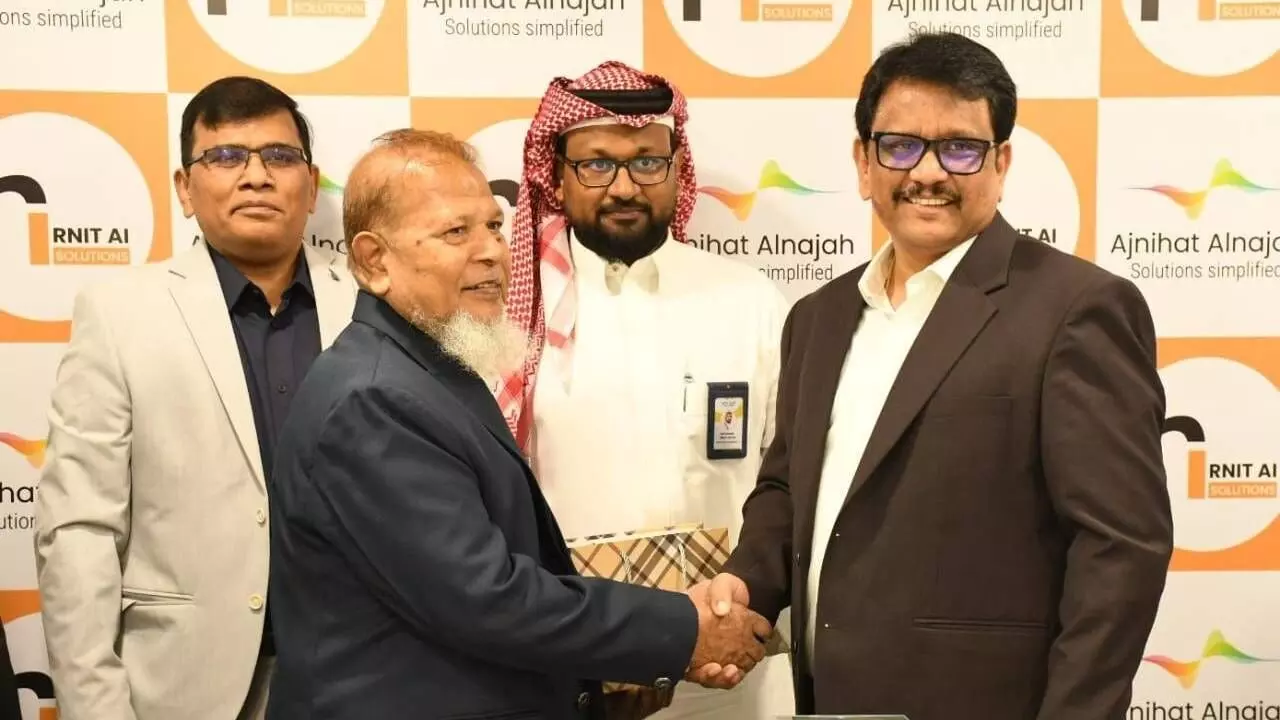RNIT AI Solutions announces GCC entry through strategic Saudi partnership
The partnership will combine RNIT’s expertise in AI-enabled governance platforms
image for illustrative purpose

Hyderabad: RNIT AI Solutions Ltd., a firm specialising in AI-driven governance and enterprise automation, has announced its entry into the GCC market through a strategic partnership with Saudi Arabia–based Ajnihat Alnajah Group LLC. The collaboration, valued at $3 million, is aimed at accelerating AI-led digital transformation initiatives across Saudi Arabia and other GCC countries.
The partnership will combine RNIT’s expertise in AI-enabled governance platforms, enterprise automation, facial recognition, Generative AI and Conversational AI, IoT-driven industrial systems, and open-source digital transformation frameworks with Ajnihat Alnajah Group’s deep local market intelligence and customer engagement capabilities.
Commenting on the development, Raja Srinivas Nandigam, Managing Director & CEO of RNIT AI Solutions Ltd., said the alliance marks a significant milestone in the company’s global expansion plans.
“As the GCC advances its digital transformation agenda, this partnership positions us to address emerging regional needs with scalable AI solutions,” he said. He added that the collaboration will help RNIT build culturally diverse teams and strengthen its global operational capabilities, supporting future expansion into additional international markets.
Mohammad Abdul Siddiq, CEO of Ajnihat Alnajah Group LLC, described the partnership as an opportunity to serve the region’s rapidly evolving digital ecosystem. “RNIT’s strong technology portfolio, combined with our regional expertise, will enable us to support the digital modernisation goals of multiple sectors across Saudi Arabia and the GCC,” he said.
The initial phase of the collaboration will focus on deploying RNIT’s flagship offerings, including the Faceify ERP Identification Suite, RNIT-NIA AI platforms, predictive analytics engines, open-source digital transformation systems, and AI-based decision-support solutions. Both companies will also explore co-innovation programmes, technical collaboration, and knowledge-sharing initiatives in line with regional regulatory guidelines.

